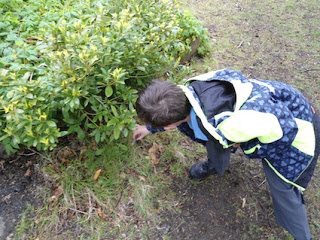
I have to admit my gentleness with worms is borne out of guilt. In the past I have established wormeries and during the trial and error stages more than a few worms were lost through my ignorance.
The trouble stemmed from being conned by the blurb on the instruction sheets. It all sounded fun, straightforward and hunky-dory:
- Set up equipment
- Bung in the compost
- Place in the worms
- Feed worms a little leftover food
- Hey presto! A flourishing worm colony!
Alas, it was never quite that simple. If you are planning to establish a school wormery, here’s some top tips to prevent wormslaughter charges being levied against you:
- Buy the book Worms Eat My Garbage by Mary Applehof and Mary Fenton. When strange bugs and beasties appear in the container the authors know what you are worried about!
- Find a fishing expert and seek their support and advice. Anglers have been nurturing worms for decades before they became right-on environmental “must haves”. They know all the tricks of the trade. It may also be possible to set up an enterprise of supply the local angling club with worms!
- If you live in a cooler part of the UK, then accept the worms may slow down their productivity if kept outside. If possible, keep them in a shed in winter and insulated with bubble wrap.
- Worms are fussy eaters. Curry, onion and citrus fruit are no-no’s and create a too acidic environment indicated by the sudden appearance of thin white worms which are NOT baby composting worms, as I mistakenly thought.
- Worms are pernickety about their living conditions. But think about it. The worm casts are their excrement. How long could you live in a house where everyone’s excrement was left lying around? Their soil needs changing and topped up frequently so that they have a clean place to live.
- Drain the worm water away from the base of the wormery every few days. It can be smelly and if it builds up, some worms may drown.
- Wormeries are not a substitute for food cones and compost heaps. These methods cope with much greater quantities of waste than wormeries. However the worm compost is rich and quickly produced.
Worms are worth it! Of all the sustainability measures introduced, worms can really engage children. Even the kids who aren’t into handling worms cannot resist learning about worms world-wide. If you don’t believe me, get them to find out about the Guinea worm.
Worms with attitude
In this day and age a few folk may find it hard to believe that worms outrank teenagers and yobs on the attitude front. It’s true. Some worms have a BIG attitude problem and I have developed a simple test to check out this out.
At some point when undertaking a gardening or composting activity, a worm will be discovered to the delight of many and the possible disgust of several children. When such an event happens, as teachers we immediately think “Aha! A learning opportunity!”
So, with prompt decisiveness, request that a worm attitude test is administered. This involves placing the worm on the palm of your hand. A worm with an attitude score of 10 will jump right off and you will need both hands to stop it. This worm is king of the compost. A worm which moves a little friskily gets a score of 5 out of 10. A worm which moves gently, has little attitude and scores 1 point. A worm which does not move may be dead.
Now, this test gives you, the teacher, a little breathing space. As the children decide whether they want to hold the worm and check out its attitude, you can do the reminders about being gentle and how to hold and treat the creature. What I have never understood is why worms behave in such different ways when picked up….





























